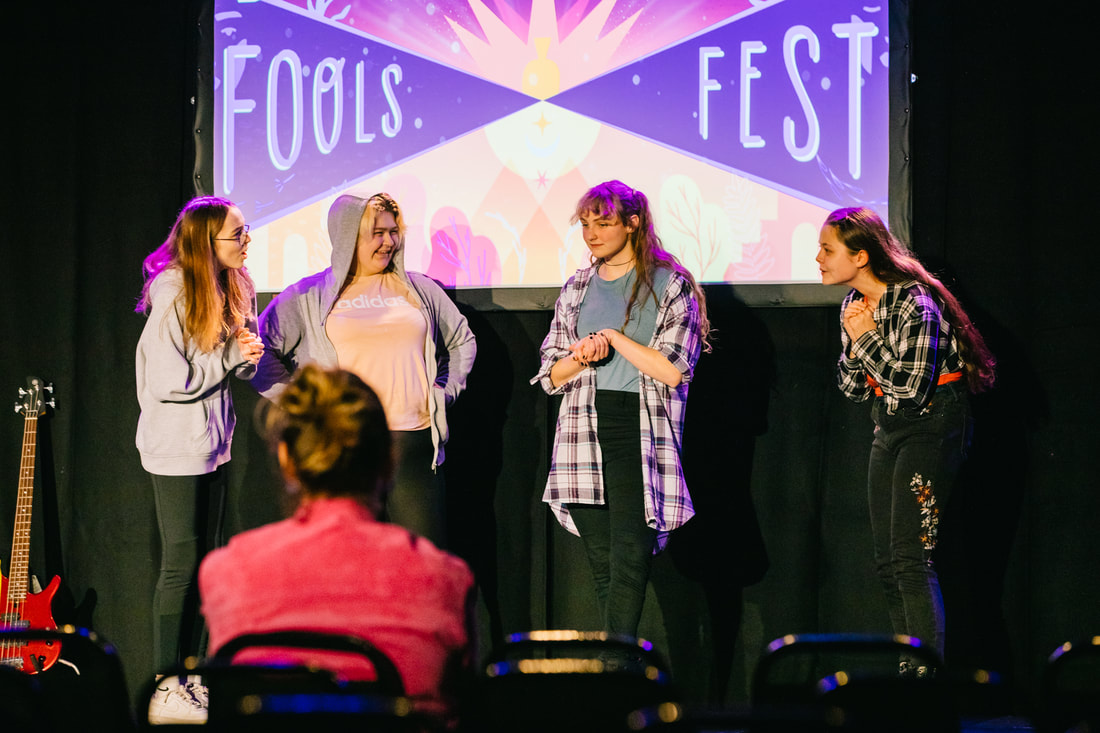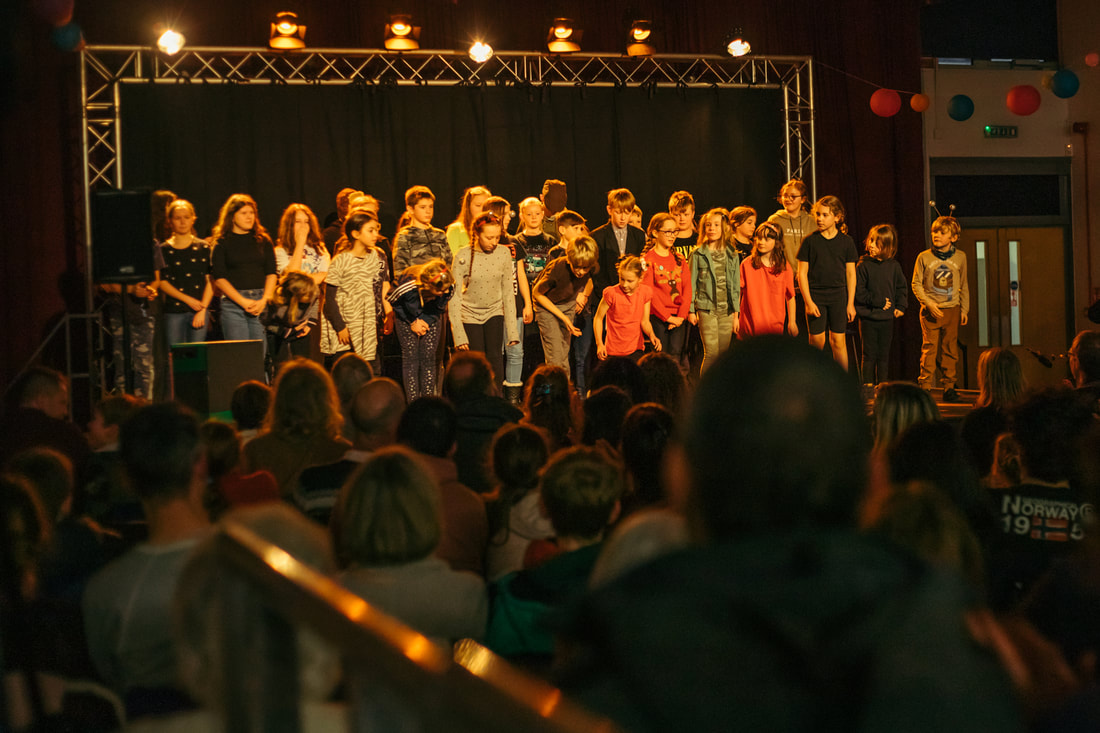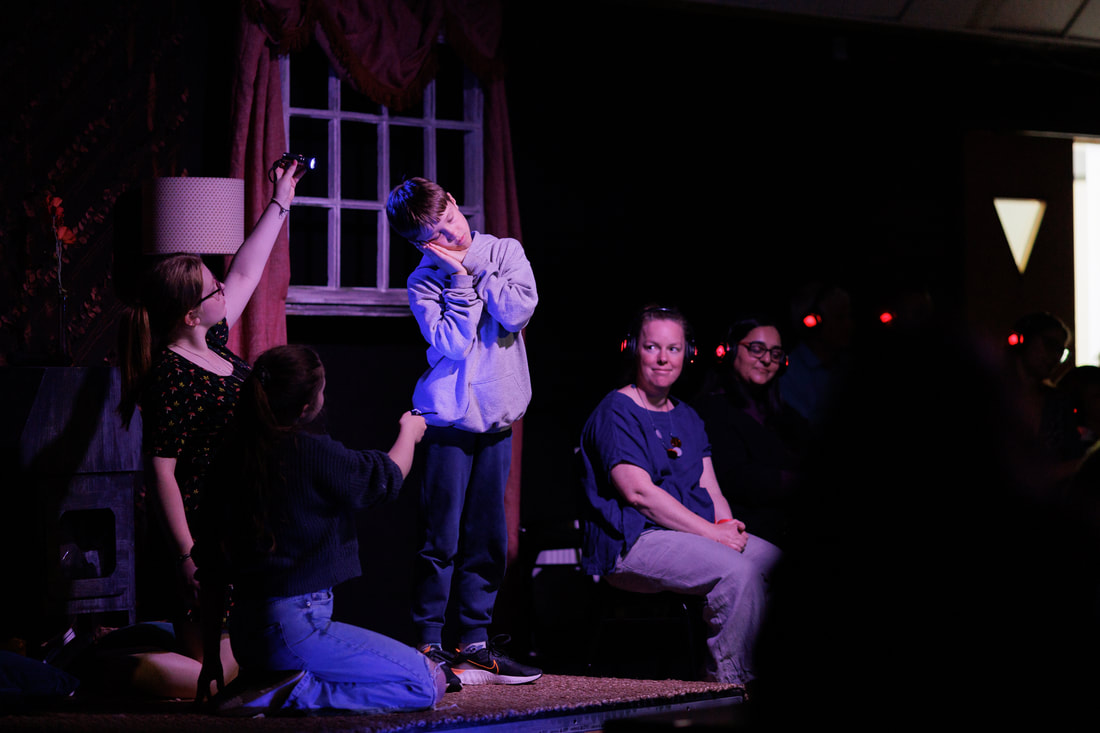|
Each year for International Women's Day there is a theme – a helpful way to get folks consider this continuously pressing issue from a new lens – this year’s theme is #EmbraceEquity. Imagine a gender equal world. A world free of bias, stereotypes, and discrimination. A world that's diverse, equitable, and inclusive. A world where difference is valued and celebrated. Together we can forge women's equality. Collectively we can all #EmbraceEquity and work towards a more inclusive world. You can find out more about this year’s International Women’s Day via the official website.  At Mortal Fools considering equity is at the heart of what we do and may look very different in various settings; we believe that valuing differences and diversity means enabling folks to be authentically themselves. Equity is not treating everyone the same and “fairly” – it instead considers individual needs of people and the barriers they face; it is being flexible, responsive and continuously listening, learning and adapting. Equity responds to the needs of individuals and adapts or evolves with additional elements to enable engagement. It looks beyond the fallacy that we are all born equal with the same opportunities or 24hours in day and accepts that the world have been constructed with a narrow and normative lens to benefit the privileged and those that have a similar lived experience to the folks that built the system. So as equity is all about adapting, making accommodations, evolving the system, proactively offering support and reaching out into communities with their needs in mind, and as it’s International Women’s Day, we could use this blog post to explore what equity in theatre, for folks that identify as women with children, might look like and what the barriers they may face when trying to attend the theatre. And of course, all genders struggle juggling childcare responsibilities with other aspects of their lives, but this issue is particularly salient for folks that give birth who carry out significantly more childcare. For this blog post, we took the opportunity to check in with our CEO and Artistic Director Kiz about her experiences of working in the theatre industry as a mother and attending the theatre (or trying to) as a parent with a young person in tow. Alongside conducting lots of research and chatting to our youth theatre parents. 1. Timing performances to fit parents’ schedules. Timing is key. Many performances start around the traditional 7pm -7:30pm, which is the classic bedtime for younger children or 2pm-2.30pm, which starts to interfere with a school run. Parents want timings that either fit into when a child is asleep or occupied elsewhere, their childcare schedule of the day, or that enable the children to be included in some way. 2. Making theatre environments child friendly There is a level of formality in theatre that is challenging for parents and children. In a theatre space, audiences are often conditioned to think they can’t make a noise, react in a particular way or cause any “disruption”. If you have young children with you during a performance, they may need dialogue with an adult to make sense of what they see or the action, they may need reassurance, they may need to move around or to stim and/or they may need to be coached to stay engaged with the content of the show. A big part of a child’s enjoyment relies on feeling secure and comfortable in that environment and sharing the experience and joy with the person they are with. As a sector, we need to challenge ourselves with what “family friendly” really means. It certainly means more than just programming a family show – the whole experience needs to be relaxed, easy to make sense of, fun, welcoming, predictable and children need to know that they can show up to the theatre as themselves and express authentically. 3. Building dialogue with audiences We need to increase free flowing dialogue with audiences – if we are devising work for a specific audience (i.e. parents or folks that identify as women) then surely they need to be involved in the process so the experience evolves with them in mind. As a sector, we often come at theatre from the point of view of the art, what we think is best and high quality and what we want from audiences, as opposed to what audiences need from us as theatre makers. That shared understanding and sweet spot is only found through meaningful dialogue with audiences. Audience experience and audience centric theatre is what we do at Mortal Fools – we’ve learnt over the last few years, that parents like to know what is expected of them as an audience member, having information enables them to feel autonomy as a cultural consumer, they feel more confident and open to trying new things. We are also proud to have a significant proportion of our audience who haven’t attended theatre before or express not feeling welcome in other theatres. There is also a false idea that there needs to be mystery in theatre – but who is the “mystery” for? Audiences need to feel comfortable before we edge them out of their comfort zone – the mystery can actually compound folks feeling theatre is inaccessible. And the first step might be getting folks into the space and experiencing something, so the focus should be on enabling them in response to their needs. 4. Thinking broadly about the needs of parents It’s important to be flexible and consider the little things. Some people may need to see the space before the performance. Many parents need their phones on as they may need to maintain contact with their children and the people who are caring for them. Some folks may need access to a quiet or private space. Some may want a more relaxed environment, where they can leave when they want and move around. Some may want a specific seat near to the exit – just in case. Challenging and deconstructing theatre norms might reveal interesting areas of comprise between artist and audience with opportunity and untapped magic. 5. Reducing ticket prices Another barrier for parents and families is the cost. In the current cost of living crisis, the real cost of a family attending the theatre (tickets, travel, snacks, dinner out, a treat) can easily cost £50-£250. It’s a significant amount for families and theatre that is targeting communities and families, should be priced with an awareness of the proportionality of that spend to a family. It would be great if theatres could develop other income generating streams so that they could subsidise ticket costs even further. 6. Experiment with new solutions When folks become parents, they are often made to feel unwelcome in public places with their children. They can feel locked out of cultural spaces or their cultural identity becomes entirely focused on their child. We’d love the theatre sector to consider new solutions and new ways of thinking. What if…..
We don’t have the answers, but we do want to see more equity and innovative solutions for parents.
“When does something become theatre? It only becomes theatre when an audience is present. Our audience is invited into a space and their needs are thought about from the beginning of the creative process. They are treated with care, consideration, and respect. And as a result, you don’t lose the magic of theatre, you extend its reach.” – Kiz Crosbie – CEO & Artistic Director at Mortal Fools What are your experiences as a parent attending performances? How do you think theatre could be made more open and inclusive to women and parents? What does equity look like in theatre for women identifying audience members? Share your thoughts in the comments!
0 Comments
Leave a Reply. |
Archives
June 2024
Categories
All
|
MELVA |
CONNECT WITH US |
CONTACT US0191 580 1250
[email protected] |
MAILING LIST |
|
HEAD OFFICE
YMCA Northumberland North View Ashington Northumberland NE63 9XQ |
|
PRUDHOE OFFICE
Spetchells Centre Front Street Prudhoe Northumberland NE42 5AA |
Mortal Fools is a company limited by guarantee and a registered charity. Company number: 8102487. Charity number: 1153400.
View our Privacy Policy here. View our Safeguarding Policy here.
View our Privacy Policy here. View our Safeguarding Policy here.




 RSS Feed
RSS Feed







